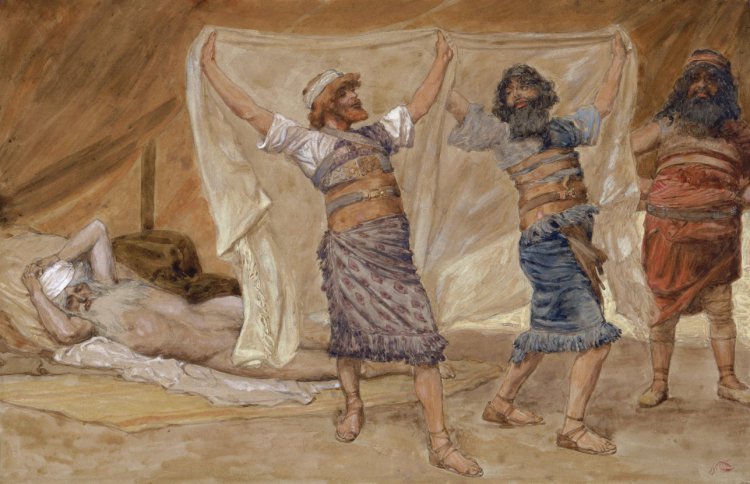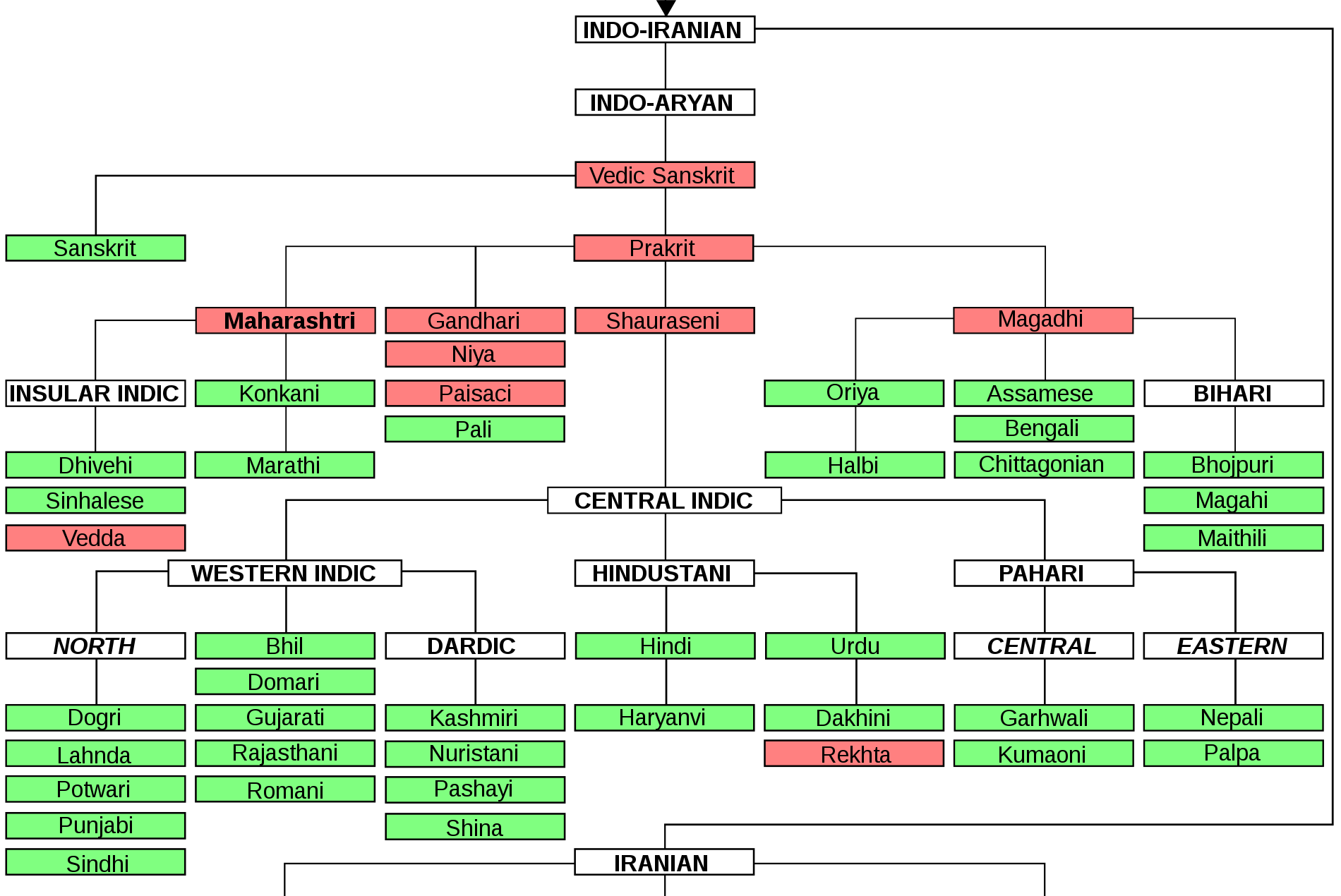|
Javan
Javan () was the fourth son of Noah's son Japheth according to the "Generations of Noah" (Book of Genesis, chapter 10) in the Hebrew Bible. Josephus states the traditional belief that this individual was the ancestor of the Greeks. Also serving as the Hebrew name for Greece or Greeks in general, יָוָן ''Yavan'' or ''Yāwān'' has long been considered cognate with the name of the eastern Greeks, the Ionians (Greek Ἴωνες ''Iōnes'', Homeric Greek Ἰάονες ''Iáones''; Mycenaean Greek *Ιαϝονες ''Iawones''). Giving that all Torah scrolls are strictly un punctuated reading the word יון can give ''Yon'', given as the letter Vaw may just as equally function as consonant (read "v") or vowel (read "o" or " ʊ"). The Greek race has been known by cognate names throughout the Eastern Mediterranean, Near East and beyond: see Sanskrit ''Yona'' & Sanskrit ( ''yavana'') or the proto- Aryan languages from which Sanskrit probably originated. In Greek mythology, the epo ... [...More Info...] [...Related Items...] OR: [Wikipedia] [Google] [Baidu] |
Sanskrit
Sanskrit (; attributively , ; nominally , , ) is a classical language belonging to the Indo-Aryan branch of the Indo-European languages. It arose in South Asia after its predecessor languages had diffused there from the northwest in the late Bronze Age. Sanskrit is the sacred language of Hinduism, the language of classical Hindu philosophy, and of historical texts of Buddhism and Jainism. It was a link language in ancient and medieval South Asia, and upon transmission of Hindu and Buddhist culture to Southeast Asia, East Asia and Central Asia in the early medieval era, it became a language of religion and high culture, and of the political elites in some of these regions. As a result, Sanskrit had a lasting impact on the languages of South Asia, Southeast Asia and East Asia, especially in their formal and learned vocabularies. Sanskrit generally connotes several Old Indo-Aryan language varieties. The most archaic of these is the Vedic Sanskrit found in the Rig Veda, a colle ... [...More Info...] [...Related Items...] OR: [Wikipedia] [Google] [Baidu] |
Generations Of Noah
The Generations of Noah, also called the Table of Nations or Origines Gentium, is a genealogy of the sons of Noah, according to the Hebrew Bible (Genesis ), and their dispersion into many lands after the Flood, focusing on the major known societies. The term ''nations'' to describe the descendants is a standard English translation of the Hebrew word " goyim", following the 400 CE Latin Vulgate's "nationes", and does not have the same political connotations that the word entails today. The list of 70 names introduces for the first time several well-known ethnonyms and toponyms important to biblical geography, such as Noah's three sons Shem, Ham and Japheth, from which 18th century German scholars at the Göttingen School of History derived the race terminology Semites, Hamites and Japhetites. Certain of Noah's grandsons were also used for names of peoples: from Elam, Ashur, Aram, Cush, and Canaan were derived respectively the Elamites, Assyrians, Arameans, Cushites, and C ... [...More Info...] [...Related Items...] OR: [Wikipedia] [Google] [Baidu] |
Ionians
The Ionians (; el, Ἴωνες, ''Íōnes'', singular , ''Íōn'') were one of the four major tribes that the Greeks considered themselves to be divided into during the ancient period; the other three being the Dorians, Aeolians, and Achaeans. The Ionian dialect was one of the three major linguistic divisions of the Hellenic world, together with the Dorian and Aeolian dialects. When referring to populations, “''Ionian''” defines several groups in Classical Greece. In its narrowest sense, the term referred to the region of Ionia in Asia Minor. In a broader sense, it could be used to describe all speakers of the Ionic dialect, which in addition to those in Ionia proper also included the Greek populations of Euboea, the Cyclades, and many cities founded by Ionian colonists. Finally, in the broadest sense it could be used to describe all those who spoke languages of the East Greek group, which included Attic. The foundation myth which was current in the Classical peri ... [...More Info...] [...Related Items...] OR: [Wikipedia] [Google] [Baidu] |
Japheth
Japheth ( he, יֶפֶת ''Yép̄eṯ'', in pausa ''Yā́p̄eṯ''; el, Ἰάφεθ '; la, Iafeth, Iapheth, Iaphethus, Iapetus) is one of the three sons of Noah in the Book of Genesis, in which he plays a role in the story of Noah's drunkenness and the curse of Ham, and subsequently in the Table of Nations as the ancestor of the peoples of the Aegean Sea, Anatolia, and elsewhere. In medieval and early modern European tradition he was considered to be the progenitor of the European peoples, Javakhishvili, Ivane (1950), ''Historical-Ethnological problems of Georgia, the Caucasus and the Near East''. Tbilisi, pp. 130–135 (in Georgian). while Islamic traditions also include the Chinese people among his descendants. Etymology The meaning of the name ''Japheth'' is disputable. There are two possible sources to the meaning of the name: * From Aramaic root , meaning ''to extend''. In this case, the name would mean ''may He extend'' (Rashi). * From Hebrew root , meaning ''beauty ... [...More Info...] [...Related Items...] OR: [Wikipedia] [Google] [Baidu] |
Ion (mythology)
According to Greek mythology, Ion (; grc, Ἴων, ''Íon'', gen.: Ἴωνος, ''Íonos'', "going") was the illegitimate child of Creüsa, the daughter of Erechtheus and wife of Xuthus. Mythology One story of Ion is told in the tragedy play '' Ion'' by Euripides. Creusa conceived Ion with Apollo then she abandoned the child. Apollo asked Hermes to take Ion from his cradle. Ion was saved (and raised) by a priestess of the Delphic Oracle. Later, Xuthus was informed by the oracle that the first person he met when leaving the oracle would be his son, and this person was Ion. He interpreted it to mean that he had fathered Ion, when, in fact, Apollo was giving him Ion as an adoptive son. Creusa was planning on killing Ion due to her jealousy that Xuthus had a son while she was still childless. At the same time, Ion was planning on doing harm to Creusa. In the end, Creusa found out that Ion was her child, and only Xuthus' adopted child. In the other accounts, Ion was the founder o ... [...More Info...] [...Related Items...] OR: [Wikipedia] [Google] [Baidu] |
Yavana
The word Yona in Pali and the Prakrits, and the analogue Yavana in Sanskrit and Yavanar in Tamil, were words used in Ancient India to designate Greek speakers. "Yona" and "Yavana" are transliterations of the Greek word for "Ionians" ( grc, Ἴωνες < Ἰάoνες < *Ἰάϝoνες), who were probably the first Greeks to be known in the East. Both terms appear in ancient literature. ''Yavana'' appears, for instance, in the '''', while ''Yona'' appears in texts such as the Sri Lankan chronicle '' Mahavamsa''. The Yona are mentioned in the |
Yona
The word Yona in Pali and the Prakrits, and the analogue Yavana in Sanskrit and Yavanar in Tamil, were words used in Ancient India to designate Greek speakers. "Yona" and "Yavana" are transliterations of the Greek word for " Ionians" ( grc, Ἴωνες < Ἰάoνες < *Ἰάϝoνες), who were probably the first Greeks to be known in the East. Both terms appear in ancient literature. ''Yavana'' appears, for instance, in the '''', while ''Yona'' appears in texts such as the n chronicle '' Mahavamsa''. The Yona are mentioned ... [...More Info...] [...Related Items...] OR: [Wikipedia] [Google] [Baidu] |
Indo-Aryan Languages
The Indo-Aryan languages (or sometimes Indic languages) are a branch of the Indo-Iranian languages in the Indo-European languages, Indo-European language family. As of the early 21st century, they have more than 800 million speakers, primarily concentrated in India, Pakistan, Bangladesh, Nepal, Sri Lanka, and Maldives. Moreover, apart from the Indian subcontinent, large immigrant and expatriate Indo-Aryan–speaking communities live in Northwestern Europe, Western Asia, North America, the Caribbean, Southeast Africa, Polynesia and Australia, along with several million speakers of Romani languages primarily concentrated in Southeast Europe, Southeastern Europe. There are over 200 known Indo-Aryan languages. Modern Indo-Aryan languages descend from Old Indo-Aryan languages such as early Vedic Sanskrit, through Middle Indo-Aryan languages (or Prakrits). The largest such languages in terms of First language, first-speakers are Hindustani language, Hindi–Urdu (),Standard Hindi firs ... [...More Info...] [...Related Items...] OR: [Wikipedia] [Google] [Baidu] |
Greek Mythology
A major branch of classical mythology, Greek mythology is the body of myths originally told by the ancient Greeks, and a genre of Ancient Greek folklore. These stories concern the origin and nature of the world, the lives and activities of deities, heroes, and mythological creatures, and the origins and significance of the ancient Greeks' own cult and ritual practices. Modern scholars study the myths to shed light on the religious and political institutions of ancient Greece, and to better understand the nature of myth-making itself. The Greek myths were initially propagated in an oral-poetic tradition most likely by Minoan and Mycenaean singers starting in the 18th century BC; eventually the myths of the heroes of the Trojan War and its aftermath became part of the oral tradition of Homer's epic poems, the '' Iliad'' and the '' Odyssey''. Two poems by Homer's near contemporary Hesiod, the ''Theogony'' and the '' Works and Days'', contain accounts of the ... [...More Info...] [...Related Items...] OR: [Wikipedia] [Google] [Baidu] |
Noah
Noah ''Nukh''; am, ኖህ, ''Noḥ''; ar, نُوح '; grc, Νῶε ''Nôe'' () is the tenth and last of the pre-Flood patriarchs in the traditions of Abrahamic religions. His story appears in the Hebrew Bible (Book of Genesis, chapters 5–9), the Quran and Baha'i writings. Noah is referenced in various other books of the Bible, including the New Testament, and in associated deuterocanonical books. The Genesis flood narrative is among the best-known stories of the Bible. In this account, Noah labored faithfully to build the Ark at God's command, ultimately saving not only his own family, but mankind itself and all land animals, from extinction during the Flood. Afterwards, God made a covenant with Noah and promised never again to destroy all the Earth's creatures with a flood. Noah is also portrayed as a "tiller of the soil" and as a drinker of wine. Biblical narrative Tenth and final of the pre-Flood (antediluvian) Patriarchs, son to Lamech and an unnamed mother, ... [...More Info...] [...Related Items...] OR: [Wikipedia] [Google] [Baidu] |








